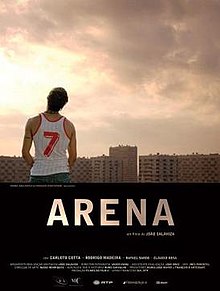
Alejandro González Iñárritu (; American Spanish: ; credited since 2014 as Alejandro G. Iñárritu; is a Mexican filmmaker. He is primarily known for making modern psychological drama films about the human condition. His projects have garnered critical acclaim and numerous accolades including five Academy Awards with a Special Achievement Award, three Golden Globe Awards, three BAFTA Awards, two Directors Guild of America Awards. His most notable films include Amores perros, 21 Grams, Babel, Biutiful, Birdman, The Revenant, and Bardo.
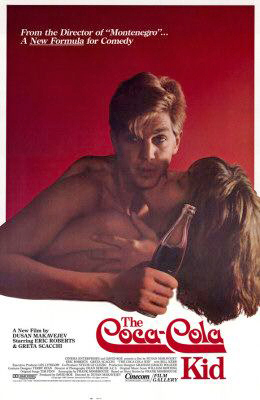
The Coca-Cola Kid is a 1985 Australian romantic comedy film. It was directed by Dušan Makavejev and stars Eric Roberts and Greta Scacchi. The film is based on the short stories The Americans, Baby, and The Electrical Experience by Frank Moorhouse, who wrote the screenplay. It was entered into the 1985 Cannes Film Festival.
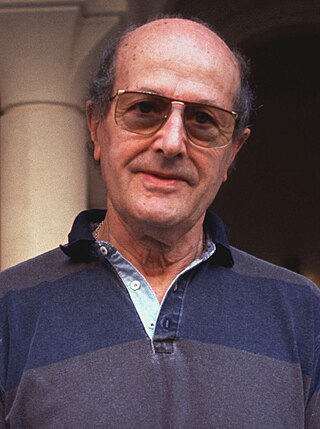
Manoel Cândido Pinto de Oliveira was a Portuguese film director and screenwriter born in Cedofeita, Porto. He first began making films in 1927, when he and some friends attempted to make a film about World War I. In 1931, he completed his first film Douro, Faina Fluvial, a documentary about his home city Porto made in the city-symphony genre. He made his feature film debut in 1942 with Aniki-Bóbó and continued to make shorts and documentaries for the next 30 years, gaining a minimal amount of recognition without being considered a major world film director.

The 58th Cannes Film Festival took place from 11 May and ran until 22 May 2005. Serbian filmmaker Emir Kusturica served as jury president for the main competition. Cécile de France hosted the opening and closing ceremonies.

Pedro Costa is a Portuguese film director. He is best known for his sequence of films set in Lisbon, which focuses on the lives of the impoverished residents of a slum in the Fontainhas neighbourhood.
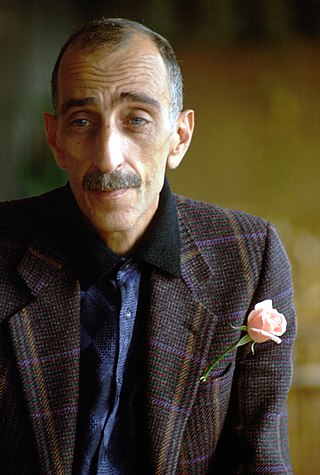
João César Monteiro Santos was a Portuguese film director, actor, writer and film critic.

The Cinema of Portugal started with the birth of the medium in the late 19th century. Cinema was introduced in Portugal in 1896 with the screening of foreign films and the first Portuguese film was Saída do Pessoal Operário da Fábrica Confiança, made in the same year. The first movie theater opened in 1904 and the first scripted Portuguese film was O Rapto de Uma Actriz (1907). The first all-talking sound film, A Severa, was made in 1931. Starting in 1933, with A Canção de Lisboa, the Golden Age would last the next two decades, with films such as O Pátio das Cantigas (1942) and A Menina da Rádio (1944). Aniki-Bóbó (1942), Manoel de Oliveira's first feature film, marked a milestone, with a realist style predating Italian neorealism by a few years. In the 1950s the industry stagnated. The early 1960s saw the birth of the Cinema Novo movement, showing realism in film, in the vein of Italian neorealism and the French New Wave, with films like Dom Roberto (1962) and Os Verdes Anos (1963). The movement became particularly relevant after the Carnation Revolution of 1974. In 1989, João César Monteiro's Recordações da Casa Amarela won the Silver Lion at the Venice Film Festival and in 2009, João Salaviza's Arena won the Short Film Palme d'Or at the Cannes Film Festival. Several other Portuguese films have been in competition for major film awards like the Palme d'Or and the Golden Bear. João Sete Sete (2006) was the first Portuguese animated feature film. Portuguese cinema is significantly supported by the State, with the government's Instituto do Cinema e do Audiovisual giving films financial support.
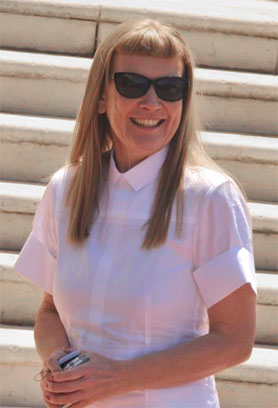
Andrea Patricia Arnold OBE is an English filmmaker and former actress. She won an Academy Award for her short film Wasp in 2005. Her feature films include Red Road (2006), Fish Tank (2009), and American Honey (2016), all of which have won the Jury Prize at the Cannes Film Festival. Arnold has also directed four episodes of the Amazon Prime Video series Transparent, as well as all seven episodes of the second season of the HBO series Big Little Lies. Her documentary Cow premiered at the 2021 Cannes Film Festival and played at the 2021 Telluride Film Festival.

Marco Martins is a Portuguese Film and Theatre director, best known for his 2005 film Alice, which premiered at Cannes and won the Best Picture Award at the Directors' Fortnight.

Ruy Alexandre Guerra Coelho Pereira is a Portuguese-Brazilian film director and screenwriter. Guerra was born a Portuguese citizen in Lourenço Marques in Mozambique, when it was still a Portuguese colony.

The 62nd Cannes Film Festival took place from 13 May to 24 May 2009. French actress Isabelle Huppert served as jury president for the main competition. Austrian filmmaker Michael Haneke won the Palme d'Or, the festival's top prize, for the drama film The White Ribbon.

The 30th Cannes Film Festival took place from 13 to 27 May 1977. Italian filmmaker Roberto Rossellini served as jury president for the main competition.
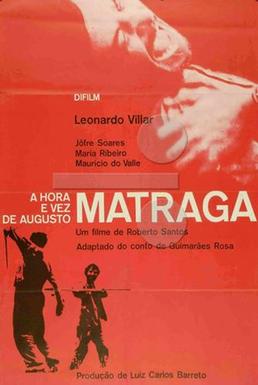
The Hour and Turn of Augusto Matraga is a 1965 Brazilian crime drama film directed by Roberto Santos, based on the short story of the same name by João Guimarães Rosa.
João Salaviza is a Portuguese film director, screenwriter, editor, producer, and former actor. He is the recipient of several accolades, including the Short Film Golden Bear, the Short Film Palme d'Or, and the Un Certain Regard.

The 64th Cannes Film Festival |took place from 11 to 22 May 2011. American actor Robert De Niro served as the president of the jury for the main competition. American filmmaker Terrence Malick won the Palme d'Or, the festival's top prize, for the drama film The Tree of Life.

The 65th Cannes Film Festival took place from 16 to 27 May 2012. Italian filmmaker Nanni Moretti was the president of the jury for the main competition. French actress Bérénice Bejo hosted the opening and closing ceremonies. Austrian filmmaker Michael Haneke won the Palme d'Or, the festival's top prize, for the drama film Amour.
Khayrulin, Ramil Ratmirovich is a Russian film producer, filmmaker and screenwriter.

Kleber Mendonça Filho is a Brazilian film director, screenwriter, producer, and critic.
Gitanjali Rao is an Indian theatre actress, animator and film maker.
Mark Albiston is a New Zealand film, television and advertising director. He graduated from University of Canterbury in Christchurch in 1992 with a degree in Fine Arts.
